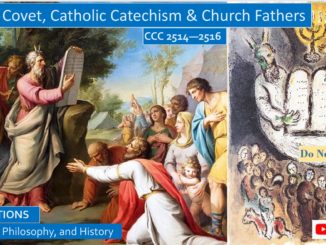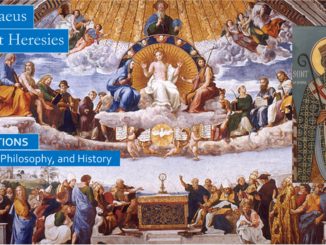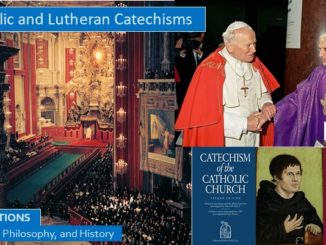
Catholic Catechism, Do Not Covet, CCC 2514-2516
Surprisingly, the Catholic Catechism discusses concupiscence not when reflecting on the commandment prohibiting adultery but on the commandment forbidding coveting your neighbor’s wife. Concupiscence is not itself a sin, and although it is commonly thought of as a sexual sin, it can “refer to any intense form of human desire.” “Concupiscence stems from the disobedience of the first sin. It unsettles man’s moral faculties and, without being in itself an offense, inclines man to commit sins.” The Catholic Catechism footnotes the decrees of the Council of Trent, which teaches that “concupiscence or the tinder of sin remains in the baptized. Since it is left for us to wrestle with, it cannot harm those who do not consent but manfully resist it by the grace of Jesus Christ.” This decree of Trent then confirms that concupiscence is not sin itself, but inclines us to sin. […]


